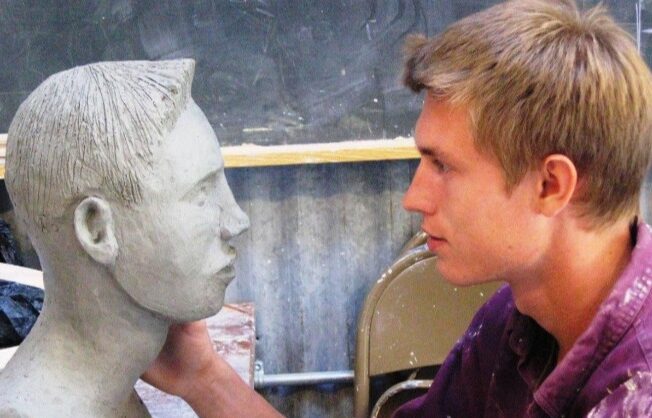We develop the Adaptability Quotient at Summerfield.
We’ve heard of IQ, and even EQ (based on emotional intelligence), but have you heard of AQ? Natalie Fratto defines the Adaptability Quotient (AQ) as the ability to pivot and flourish in an environment of change. And we know that AQ isn’t only important in the workplace, but also in schools.
With increasing changes in technology, employers care not just about intelligence and social skills, but about an employee’s adaptability quotient. AQ is the ability to adapt to new challenges with flexibility, curiosity, problem-solving skills, courage, and resilience.
That’s why at Summerfield Waldorf School, we deepen rigorous academics through integrating art, outdoor education, music, theater, practical work, movement and hands on-learning. The depth and breadth of our curriculum challenges our students, and develops crucial capacities that help them adapt and thrive throughout their lives.
“IQ is the minimum you need to get a job, but AQ is how you will be successful over time.” – Natalie Fratto, founder of The AQ Lab
The BBC article, “Is ‘AQ’ more important than intelligence?” states:
AQ is not just the capacity to absorb new information. It is the ability to work out what is relevant, to unlearn obsolete knowledge, overcome challenges, and make a conscious effort to change. AQ involves flexibility, curiosity, courage, resilience and problem-solving skills too.
Amy Edmondson, of Harvard Business School, says it is the breakneck speed of workplace change that will make AQ more valuable than IQ. Over the next three years, 120 million people in the world’s 12 largest economies may need to be reskilled because of automation, according to a 2019 IBM study.
To avoid obsolescence, workers need to develop new skills like creativity to solve problems and empathy to communicate better. AQ is now increasingly being sought at the hiring level. According to the IBM study, executives globally rated behavioral skills as most critical for the workforce today. Chief among them was the “willingness to be flexible, agile and adaptable to change”.
A great thing about AQ is that experts say you can work to develop it. Penny Locaso, the founder of Hacking Happy Co., suggests three ways to do this. First, limit distractions and learn to focus so you can determine what adaptations to make. Second, ask questions to develop courage and normalize fear. Third, be curious about things that fascinate you by having more conversations rather than Googling the answer.
How Waldorf Education teaches AQ
At Summerfield, we offer rigorous academics that integrating performing and visual arts, outdoor education, and more. Our hands-on curriculum challenges our students and develops crucial capacities that help them develop their adaptability quotient.
When looking at Penny Locaso’s three keys for adaptability, it is clear that we can check off all three boxes.
1. Limit Distractions: Our school is a phone-free zone, and we encourage all families to implement the Wait Until 8th policy in regards to smartphones. These guidelines ensure that our students remain distraction-free, both at school and at home. Additionally, we implement outdoor time in our daily lessons and activities. Nobody does their best work sitting at a desk or table all day. It is important to break up the day with outdoor activities, movement, art, and music. These are cornerstones of Waldorf Education.
2. Ask questions: Waldorf Pedagogy values difference. We support students so that they can bring their gifts to fruition while learning to cope with their challenges. Students at Summerfield leave with a strong sense of purpose and a clear understanding of both themselves and the world. This is done, in large part, by the encouragement of all students to ask questions. We focus on challenging students in such a way that the emergent ability of independent thinking can lead to a true experience of meaning.
3. Be curious: The world is full of wonder for our Summerfield students, and it is thrilling to see curiosity across all grades and in all aspects of learning. Our teachers give regular prompts to their class to be curious about the world around them. In our early childhood program, children are led to an experience of meaning through a plethora of play-based activities. During the grade school years, children are led to an exploration of meaning through awakening interest, enthusiasm and love for the subject at hand. In the high school years, students engage in discussion-based classes, and create projects that develop their unique understanding of the world and their own individuality.
Our students learn how to adapt, increasing their AQ, at every step along their educational journey. Our students are asking important questions, staying curious about the world around them, and honing their focus and passions throughout the years.

